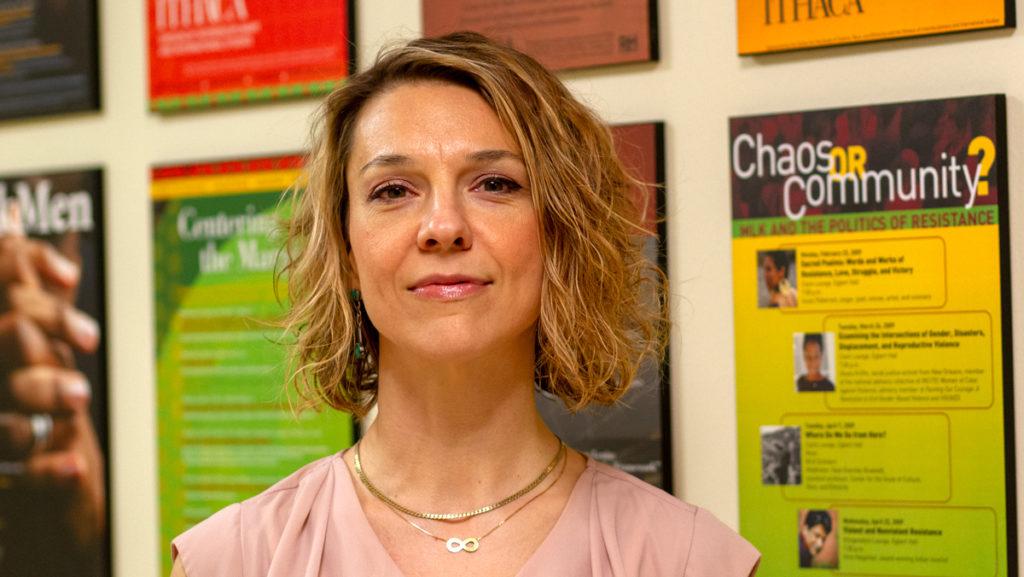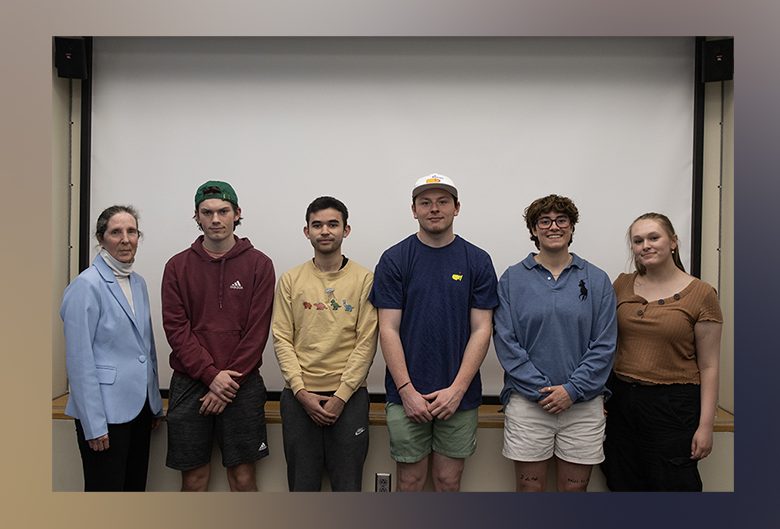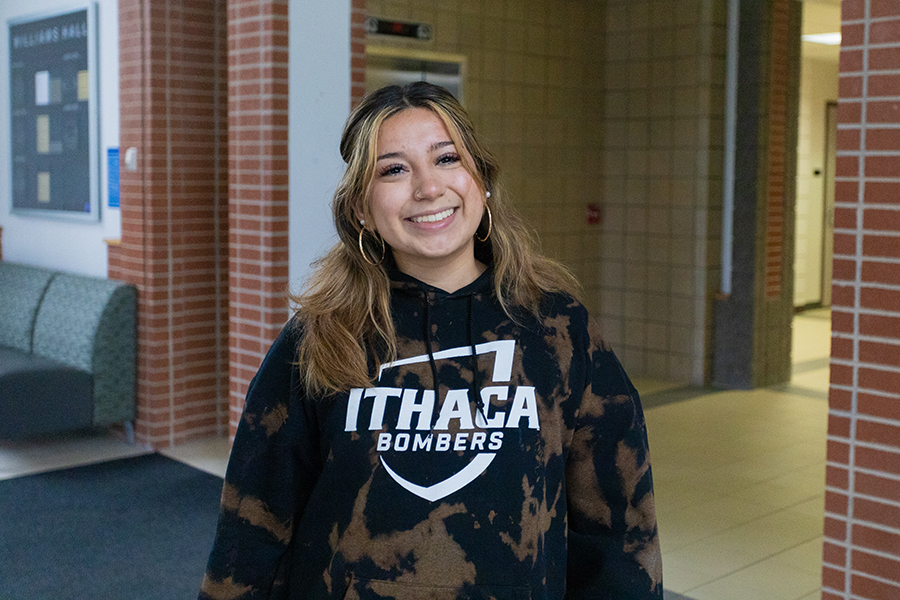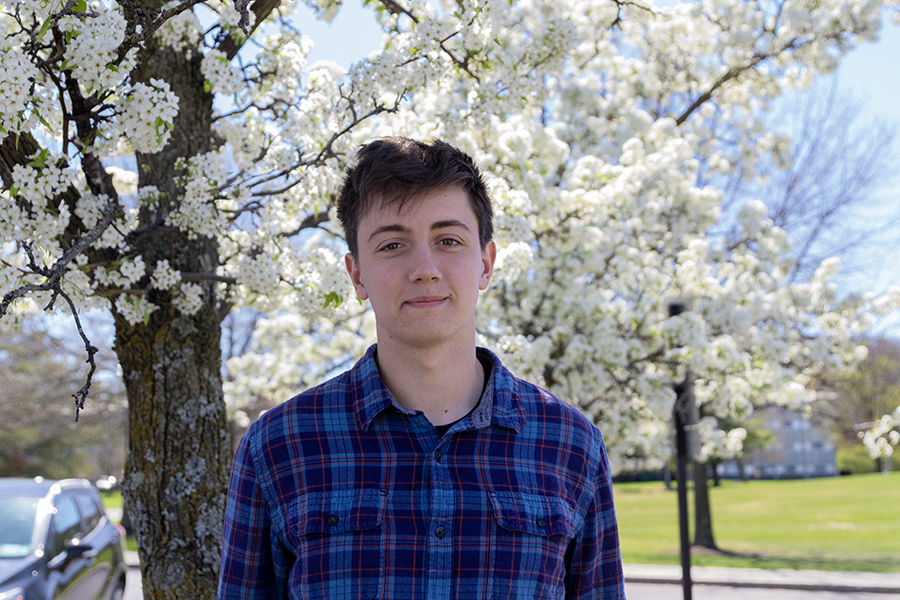While teaching as an associate professor in Ithaca College’s Center for the Study of Culture, Race and Ethnicity, Paula Ioanide has also been working on how to improve higher education by making it more inclusive from the ground up.
Over the past decade, Ioanide has been collaborating with a group of scholars to form the anthology “Seeing Race Again: Countering Colorblindness across the Disciplines,” a work that challenges the underlying biases present in many academic disciplines. Ioanide’s essay, “Negotiating Privileged Students’ Affective Resistances: Why a Pedagogy of Emotional Engagement is Necessary,” was recently published as a chapter of the anthology.
Opinion Editor Meredith Burke spoke with Ioanide about her chapter, its relevance today and how it relates to her work at the college.
This interview has been edited for length and clarity.
Meredith Burke: For our readers, could you provide a brief overview of your chapter?
Paula Ioanide: It’s called “Negotiating Privileged Students’ Affective Resistances,” so it’s obviously focused on privileged students in the classroom. … Affect refers to the academic term that, essentially, is thinking about the role of emotion and embodied responses that are not necessarily always consciously intended or held. … It’s in the context of a collection “Seeing Race Again: Countering Colorblindness Across the Disciplines,” which is the product of a 10-year collaboration between very amazing scholars across different disciplines and fields. … And what we were getting together to think about is the way that the disciplines in presuming a kind of universalism … have a lot of racial and gendered assumptions. … The essay is sort of a meditation on why privileged students refuse to learn even when evidence is presented to them about racism, about sexism, and then it proposes some pedagogical strategies that teachers can use to deal with that refusal.
MB: Why do you think it’s important that we discuss the topic you explore in your essay?
PI: I think a lot of people presume that what we do in the classroom is that we give people knowledge and information based on evidence, and students actually absorb the evidence. I’m making the claim that most of the time students refuse that evidence based on their emotions and belief systems, even on subjects that are not gender or class. … The point here is that the power of belief and emotion actually severely trumps our ability to cognitively receive and integrate knowledge. … Basically, I want to think along with my colleagues about what pedagogical methods actually work to increase learning the classroom.
MB: What pedagogical methods do you find combat this resistance?
PI: I found that you have to actually engage students’ emotions consciously as opposed to what we tend to do in the classroom and what most of us have been trained to do, … which is to keep the conversation abstract and only intellectual. … An example of this would be, let’s say, a very contentious debate is taking place in the classroom around race and racism, … the professor’s tendency is to want to move away from the conflict. … What I’m trying to do is argue that if you’re doing that, you’re being ineffective pedagogically at making people be conducive to learning. And I base that in the research of social psychology … that engages the question of emotions, of affect, and the question of learning to see what kind of best practices we might adopt.
MB: How have you witnessed this resistance at the college?
PI: Every single class I’ve ever taught, I tend to have a few students who are clearly refusing to accept the information that’s being presented to them because it challenges their belief systems, the way they’ve been taught to see the world. When the information that’s presented challenges your belief systems and the way you’ve been taught to see the world, it challenges your sense of who you are. And when it challenges your sense of who you are, our tendency is to defend ourselves emotionally by being defensive, self-protective and to basically not want to integrate our knowledge. … This tends to happen much more for privileged students than students who have experiences with discrimination because students who have experiences with discrimination have an entry point or an access point to knowledge that shows, for example, that systemic racism persists.
MB: Any final thoughts?
PI: We’re in a moment of transition for Ithaca College. … I think the future of higher education, in general, is calling for a much more diversified curriculum that actually reflects the experiences and diverse perspectives of our students who are increasingly coming from different racial, ethnic and international locations. And so, for me, this is a sort of call to my colleagues and to faculty across Ithaca College to think very strategically and collaboratively about how we can continue working and evolving in not just the way that we teach, the pedagogical method, so that they become more inclusive … but that becomes a lens through which we teach our material regardless of what it is. … The deeper you look into the disciplinary formations of any discipline, you find that it’s very heavily involved in the ideologies of the time during which it was evolved. … For, me this essay is really about two things: How do we diversify the curriculum, not as an add-on, … but much more how do we teach what we teach … so that we are actually honest about where our disciplines came from and be self-critical in the ways in which many of our disciplines emerged with these heavy histories?














